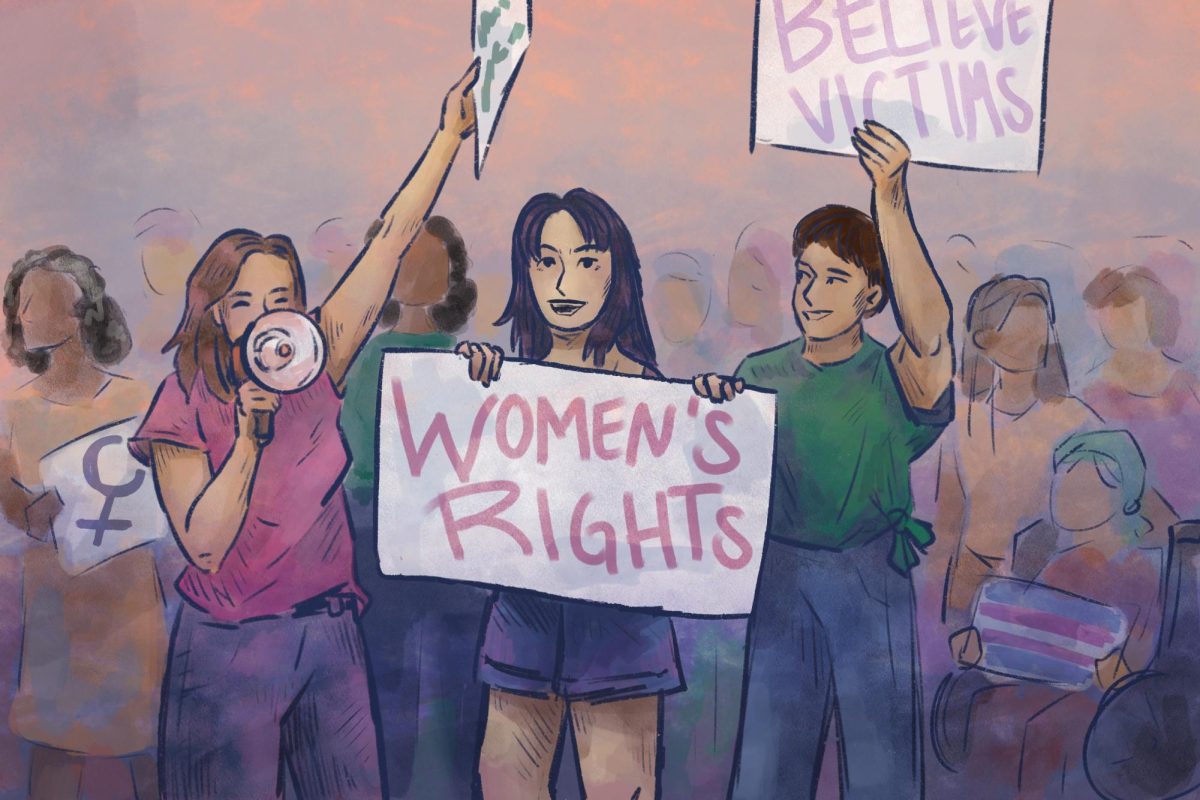Hip-hop titan and notorious jokester Eminem continues to digress stylistically and distastefully address “cancel culture” on his latest album, “The Death of Slim Shady (Coup de Grace),” released on Friday.
Born Marshall Bruce Mathers III, the 15-time Grammy awardee has acquired legendary status in the rap/hip-hop community since his debut in 1999. In his new album, however, he perpetuates the once-beloved antics of his alter ego, “Slim Shady,” with misguided irony and rage-baited modern references. The result is an immensely disappointing addition to his expansive discography.
Eminem is no stranger to balancing comedic social commentary. In 1999, “The Slim Shady LP” introduced the rapper’s distinctive approach to hip-hop. His ability to cleverly manipulate syllables for rhyme schemes and flow was considered a novelty. In using his alter-ego, he would daringly joke about homophobia, drug abuse, genitalia and anything else middle schoolers would find humorous at a sleepover.
In his new album, the 51-year-old revisits his mid-20s foolery in a social climate that has outgrown the material he exhausted. The album is plagued with complaints about pronouns, gender identity, and the physically and mentally disabled, along with countless mentions of transgender celebrity Caitlyn Jenner that almost become obsessive. Either Jenner or the transgender community is referenced in nearly every song across the first dozen.
The second track, “Habit,” begins an extended rant on censorship and political correctness. The third track, “Trouble,” is only 42 seconds long, yet there is enough time for the overly blunt and self-aware line, “You gonna cancel me, yeah? Gen-Z Me, bruh?”
The album’s downfall is not only the tone-deaf lyricism. The decent production is wasted on beats that either desperately fall flat or are parallel to the controversial lyricism.
“Brand New Dance” intends to revert to the satirical spirit of the early Slim Shady days but instead adopts a carnivalesque hip-hop style that’s obnoxious rather than playful.
Following suit, the lead single “Houdini” interpolates Steve Miller Band’s 1982 hit “Abracadabra” in a fashion almost as lazy as Yung Gravy’s Rick Astley sample on “Betty (Get Money).”
Eminem also offers brief moments of clarity to reflect on his relationship with his daughters as well as his drug addiction.
“Temporary” is a sentimental message to his daughter Hailie Jade. The rapper reminisces on moments where he vowed to protect her, and Skylar Grey, a singer featured on the track, wistfully sings in the background, “And tonight when I cry, the tears are temporary.”
The album-closer, “Somebody Save Me,” is a sample of American rapper Jelly Roll’s “Save Me.” Alongside the original song’s impassioned vocals, Eminem discusses the existential guilt of neglecting his daughters’ and nephews’ youth during the earlier days of his career, when he struggled with heavy drug use.
Though the tracks are seemingly touching, they struggle to properly coexist in the same album where Eminem grapples with what slurs he is allowed to say.
The album is not disappointing because it was anticipated to be Eminem’s best work since the early 2000s, but rather because of his insistence on perpetuating outdated deviance.
On the day before the album’s release, Eminem posted on X, “Public service announcement: the ‘death of slim shady’ is a conceptual album, therefore, if you listen to songs out of order they might not make sense. Enjoy.” The actual misconception of the album is how a rapper of his notoriety produced an album that is more despicably self-destructive than it is justifiable.









